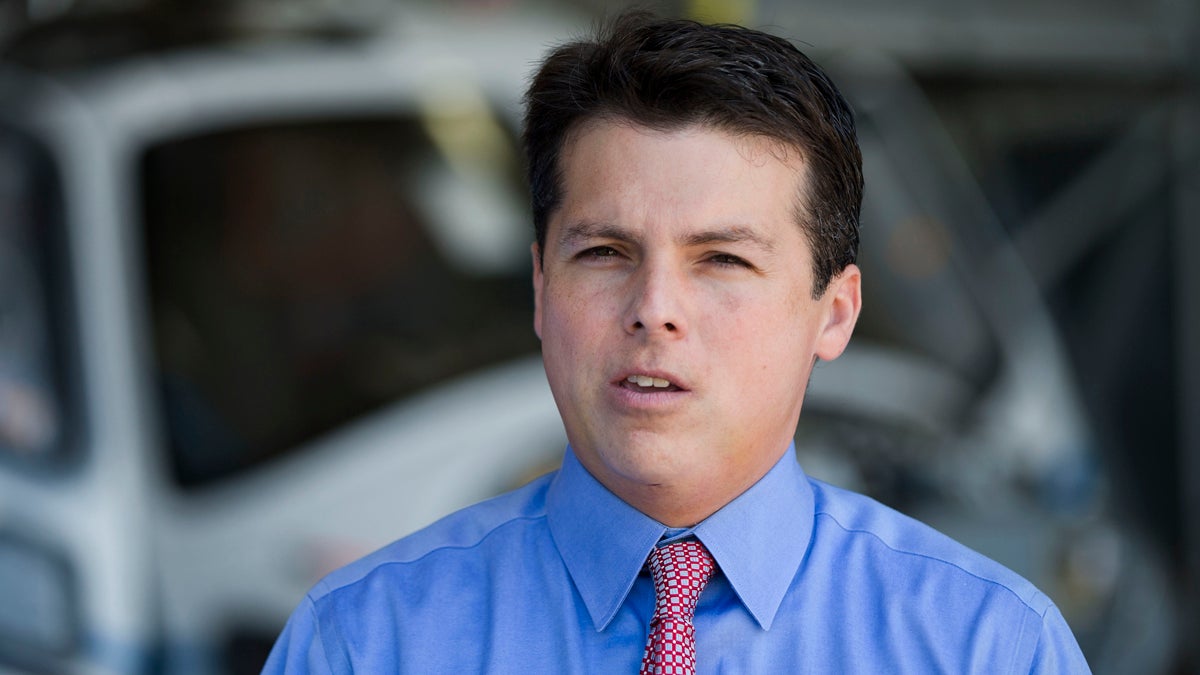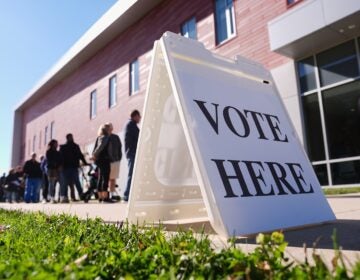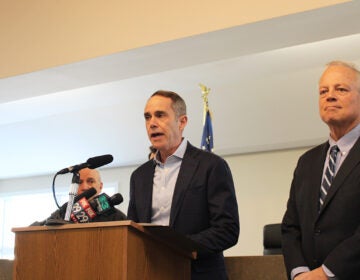Trump tax proposals too dramatic, several area lawmakers say
Listen
U.S. Rep. Brendan Boyle, D-Pennsylvania, says eliminating deductions for state and localtaxes as part of Preisdent Donald Trump's tax overhaul is a "nonstarter." (AP file photo)
President Donald Trump has been trying to go big on taxes. The president would like to slash the corporate tax rate from 35 percent down to 15 percent.
But Republican Congressman Ryan Costello, who represents parts of four counties west of Philadelphia, said that proposal may be a bit ambitious.
“I felt the president’s plan was the opening negotiating position and that tax reform, both in terms of simplifying the tax code and bringing rates down, is what we need in order to get real economic growth in the country,” he said. “I remain somewhat skeptical that you’re going to be able to get the rate that low. But I take it for what it is — which is the open negotiating tool.”
But Democrats are asking how the White House plans to recoup the loss of as much as $6 trillion in revenue over a decade, according to the Tax Policy Center.
U.S. Rep. Bill Pascrell, D-New Jersey, said the plan should sicken deficit hawks.
“A disaster … a big hole on the revenue side,” he said. “I have supported for 10 years reducing the tax rate for corporations, but what I would consider reasonable is around 24-25 percent. That itself causes a hole … this makes a bigger hole.”
Trump also wants to cut taxes on top earners — including himself, his family and many members of his Cabinet.
But one plank of the plan is causing particular angst for many lawmakers in the Delaware Valley region: The White House wants to end deductions for what you pay in local and state taxes.
U.S. Rep. Brendan Boyle, D-Pennsylvania, said that’s a nonstarter.
“I have to say, as someone who represents Philadelphia and the Philadelphia area, that would badly hurt Pennsylvania,” he said. “It would badly hurt the Northeast of this country — New York, New Jersey, Philadelphia, the rest of Pennsylvania. We would be disproportionately affected by any effort to strip away an exemption for state and local income taxes.”
State and local deductions are a matter of fairness, Boyle said.
“And really, what this means is, the Trump proposal is double taxation,” he said. “That you would be paying tax at the local and state level, and then have to pay tax again at the federal level at the same income — not taking into account that you’ve already paid tax the one time.
“So I strongly oppose it.”
Predicting strong public opposition
U.S. Sen. Chris Coons, D-Delaware, said average Americans are going to kick and scream to keep the deductions they currently rely on in place.
“The political opposition to eliminating all deductions is going to be significant … What this seems to me to be at this point is more of a campaign broadside than a thoroughly worked out tax plan,” he said.
It’s no surprise New Jersey lawmakers oppose the idea. The Garden State is notorious for its high property taxes, which are now deductible. It’s also a big deal in Pennsylvania.
According to the tax foundation, six states — Pennsylvania, New Jersey, California, New York, Illinois and Texas — account for the money returned through this deduction.
The Trump plan also eliminates one of the taxes used to fund Obamacare, which U.S. Sen. Pat Toomey, R-Pennsylvania, said doesn’t go far enough.
“Even if we get rid of all of Obamacare tax increases, which I hope we will do, we still have $800 billion over 10 years’ worth of Obama-era tax increases. Why do we want to lock that in?” Toomey said.
“I don’t.”
Toomey also said he believes the contours of the Trump plan would spur economic growth, which he said will fill the federal government’s coffers with even more revenue.
“And then, finally, the metric that matters about deficits and debt is that debt is a percentage of the economy, that’s what matters,” Toomey said. “If we have strong enough economic growth, then that number will decline. And that should be the goal.”
But U.S. Sen. Tom Carper, D-Delaware, offered some advice for the freshman president.
“What I would urge him to do is actually sit down with a group of us, Democrats and Republicans. Maybe folks on the tax committees in the House and the Senate. And say, ‘What do you think?’ Really,” Carper said. “That’s what I used to do as governor. I would bring in the Democrat and Republican legislators and say, ‘What do you think?’ Sometimes, you know, they have good ideas. And I bet we would too.”
The president and the GOP are still focused on getting health care reform through the Senate, which may prove to be a monumental task.
If Trump manages to sign the first broad tax overhaul in more than three decades, many say that would be an even more monumental achievement.
WHYY is your source for fact-based, in-depth journalism and information. As a nonprofit organization, we rely on financial support from readers like you. Please give today.




